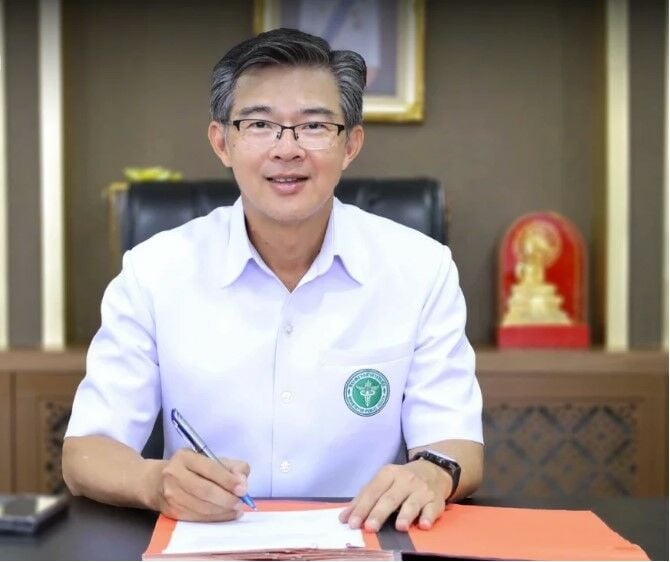Thai herbs: Nature’s secret weapon against deadly PM2.5 dust

Whilst Bangkokians battle with the silent killer, the potent PM2.5 air pollution, the Department of Thai Traditional and Alternative Medicine unveils a game-changing solution to combat the notorious dust particles threatening the health of residents in the capital city.
Amidst rising concerns over the long-term health impacts of PM2.5 exposure, Dr Taweesilp Visanuyothin, the face of the Centre for Covid-19 Situation Administration, reveals the secrets of four Thai herbs that promise to shield your lungs and heart from the invisible menace.
“Thai herbs have been scientifically proven to be effective in treating respiratory symptoms, as well as inflammation in internal organs caused by the fine dust slipping through the body’s screening mechanism.”
Highlighted as the frontline defender against fine dust pollution, the quartet includes little ironweed, laurel clockvine, Indian gooseberry, and turmeric. Dr Taweesilp prescribes little ironweed tea, also known as Ya Dok Khao, as a potent remedy for respiratory irritation, cautioning those with heart and liver conditions to consult physicians due to its high potassium content.
For detoxifying benefits, Dr Taweesilp recommends laurel clockvine or Rang Jeud, available in both tea and capsule forms. The Indian gooseberry, or Makham Pom, stands out for relieving inflammation and coughing, with its versatility in consumption—fresh, dried, or boiled into a soothing beverage.
Turmeric, celebrated for its culinary role, plays a dual role in reducing swelling and easing joint pain. Its active compound, curcumin, acts as a shield against air pollution-induced cell damage. However, caution prevails as Dr Taweesilp advises against its use for those with gallstones, reported The Nation.
Beyond herbal remedies, Dr Taweesilp underscores the significance of a well-balanced diet across five food groups, with a special emphasis on seasonal fruits and vegetables. More information can be found on the department’s Facebook page.
In related news, Bangkok Governor Chadchart Sittipunt stipulated guidelines for preventing and solving the PM2.5 dust problem in the Thai capital on January 10, at Bangkok City Hall, Din Daeng.
Latest Thailand News
Follow The Thaiger on Google News:


























